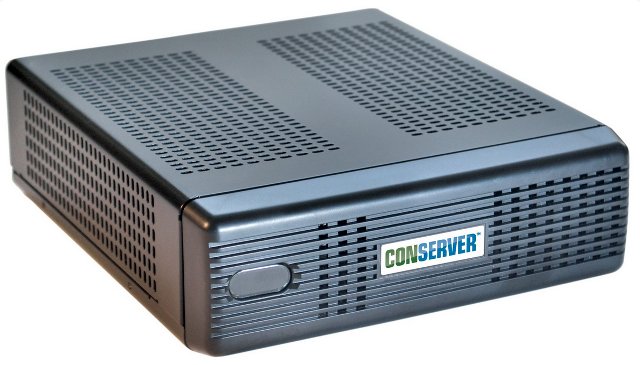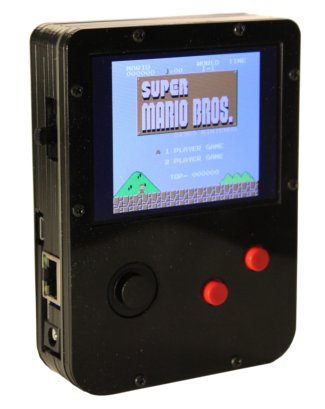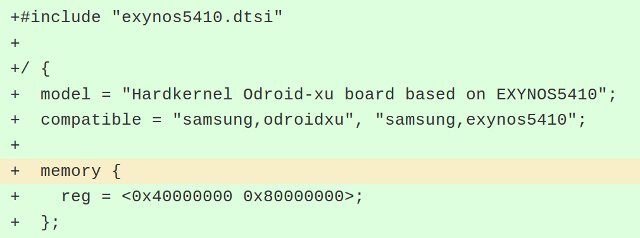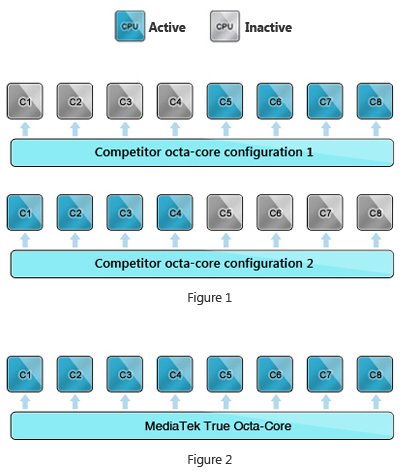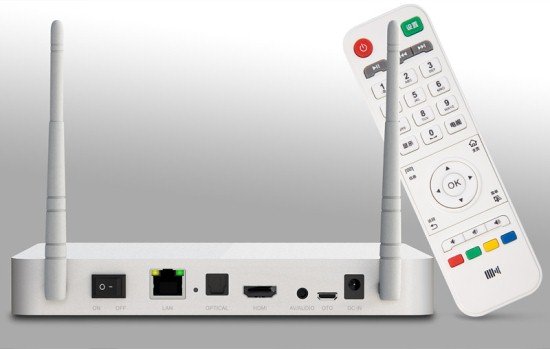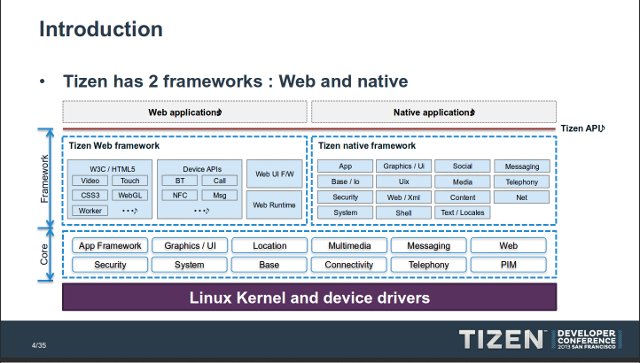I usually spend most of my time writing about low cost hardware in this blog, but in this post, I’ll deal with higher-end and more expensive devices based on Freescale i.MX6 with Cornfed CONSERVER Server System and corresponding CONSERVER motherboard, as well as Ventana Network Processing Boards. Cornfed CONSERVER Conserver is a low power high-performance ARM processor server system based on Freescale i.MX6 with 4GB RAM, Gigabit Ethernet, and SATA. The hardware specifications are as follows: SoC – Freescale i.MX6Q Quad Core ARM Cortex A9 processor @ 1.2 GHz System Memory – 4 GB DDR3 RAM Storage – ?? GB NAND Flash + 1x SATA2 connector for HDD/SSD Connectivity – 1x Gb Ethernet port USB – 4x USB Host ports Video Output – 1x HDMI port Misc – RS-232 Serial port Power Supply – 35W Internal AC Power Supply Dimensions – Mini-ITX form factor The system is preloaded with Ubuntu, and […]
Linaro 13.07 Release With Linux Kernel 3.10.1 and Android 4.2.2
Linaro 13.07 has been released with Linux Kernel 3.10.1 (both baseline and stable versions), and Android 4.2.2. It’s summer time, so activity seems to have slowdown a bit, yet improvements have done to LAVA with the first LAVA Multi-purpose Prove (LMP) setup, and Linaro has released build with Linux 3.10.1, Ubuntu Raring, OpenEmbedded (ARMv8), and Android. For the very first time, there’s even an Android 4.2.2 community build for HiSilicon K3V2 hardware (HiSilicon Hi4511 development platform). Here are the highlights of this release: LAVA LAVA Core VExpress A9 test images no longer use the master image’s boot loader Support added for interactive bootloader commands. Support for OpenID / Crowd added for LAVA. LAVA Master images updated on images.validation.linaro.org LAVA Multi-node – Multi-Node support has an initial implementation which can support communication between nodes under test via the use of a GroupDispatcher. LAVA Lab Capabilities – LMP (LAVA Multi-purpose Probe) prototypes […]
BeagleBone GamingCape Transforms your BeagleBone Black into an Hand-held Gaming Console
The BeagleBone GamingCape is an open source project featuring the BeagleBone Black together with extra hardware such as a Cape, LCD display, and enclosure that turns your Beablebone board into a battery powered hand-held gaming console. The gaming console, which has been designed within 6 weeks by Max Thrun, has the following key hardware features: 320×240 16Bit Color TFT LCD Analog joystick + 2 Thumb Buttons 3D Gyro, 3D Accelerometer, 3D Magnetometer Headphone Out + Mic In and it can emulate NES, GameBoy, GameBoy Color, GameBoy Advance, Sega Master System, Sega Game Gear, and also run Doom. It will not be mass produced, but the whole design is open source, and the necessary files are available for: The Cape: Schematics, layout, and CadSoft EAGLE file can be found Bill of Materials The Case composed of 11 laser cut pieces of Delrin – 3D files Emulators: Osmose – Sega Master System / […]
Texas Instruments Releases Android App for SensorTag and Publishes Bluetooth Low Energy Training Videos
Texas Instruments Sensortag is a Bluetooth Low Energy (BLE) development kit with 6 sensors (IR temperature, humidity, pressure, accelerometer, gyroscope, magnetometer) mainly destined at mobile application, which I recently tried in Linux. Until now, only it was only officially supported in iOS and Windows, but a few days after the release of Android 4.3 which adds Bluetooth Low Energy support, Texas Instruments quickly worked to release an Android App for their BLE devkit. The annoying part is that the Android app is only available as a Windows executable (SensorTagAndroidApp-0_9_0-windows-installer_2.exe), so you’ll have not choice but to use Windows to uncompress the files. Yet the installation goes as follows: Copy the SensorTag.apk file (SensorTag_0_9_0.apk) to your Android 4.3 device Enable installation of apps from unknown sources (Settings -> Security -> Device Administration -> Unknown Sources) Open file manager and launch, locate the .apk file and install the app by clicking the […]
Hardkernel is Working on ODROID-XU Development Board Based on Exynos 5410 Octa Core Processor
Hardkernel have already done a good job at bringing low cost, high performance development boards based on Exynos 4 Quad processor with boards such as ODROID-X, ODROID-U2, or ODROID-X2. But it appears they are not stopping here, and have recently committed code to support ODROID-XU development board based on Exynos 5410, the 8-core big.LITTLE SoC from Samsung, used in devices such as Galaxy S4. The committed code linked above point the device tree files in arch/arm/boot/dts/ (exynos5410-odroidxu.dts and exynos5410-pinctrl.dtsi) where we can see the board will have 2 GB RAM, and the Cortex A15 cores with be clocked at 1.6 GHz. Exynos5410-odroidxu.dts has been removed from 3.11 branch, so the link above points to an earlier commit. Exynos 5410 might have been the first big.LITTLE processor ever available, but it comes with a major flaw, as it only supports cluster migration (all 4 Cortex A15 or all 4 Cortex A7 […]
Mediatek Boasts True Octa-core MT6592, and GTS big.LITTLE MT8135 SoCs
We already knew Mediatek was working on MT6592, an Octa-core Cortex A7 processor for smartphones, and MT8135, a quad core bit.LITTLE processor for tablets, but in the last few days, the company revealed a bit more information about its two new application processors, mainly to show how better there are compared to the competition. Mediatek MT6592 Octa-core Cortex A7 With Exynos Octa (5410), Samsung was the first company to release an ARM powered Octa-core application processor, but Meditak explains their solution is better because MT6592 can use all 8 cores simultaneously whereas Exynos 5410 is limited to 4 at at time, and the claim is true because Samsung big.LITTLE implementation choice. Exynos 5420 will change that however, as soon as this month, but Mediatek obviously did not feel necessary to mention this details. The company expected those 8 cores to improve current applications such as : Advanced web browsing – […]
Kaiboer F4 / Ugoos UT1 Quad Core Media Player Is Now Available for as Low as $116
K-R42-1 (aka CS918 aka MK888 aka …) has been one of the first Rockchip RK3188 Android TV Boxes available on the market, and can be purchased for less than $90 US. Kaiboer F4, discovered at the end of June, has similar specs, but comes with 2 Wi-Fi antennas, potentially improving Wi-Fi reception. The only problem. until now, was that it was not available for sale, but this has now changed, and you can purchase it for $116 including on GeekBuying, renamed as Ugoos UT1. It’s also available on Aliexpress at higher prices at the time of writing. [Update: Dealsprime sells it for $109.99] Kaiboer F4 / Ugoos UT1 Specifications: SoC – Rockchip RK3188 up to 1. 8 GHz with Mali-400 MP4 GPU System Memory – 2GB DDR3 Storage – 8 GB Flash + 1x SD card Video Output – HDMI, and AV Audio Output – HDMI, AV, and optical S/PDIF […]
Tizen Developer Conference 2013 Presentation Slides, Audio Recording and Videos Are Now Available
The Tizen Developer Conference took place in San Fransisco, on May 22-24, 2013. We’e already seen a few Tizen demos from the conference, but slides and media files (mostly audio, but also some videos) are now available for keynotes and technical presentations. As this was just the second Tizen conference, there were still many sessions dealing with overall structure of the operating system, and explaining how to get started either with native or web development, such as: An Overview of the Tizen Native Application Framework Introduction of Tizen SDK minimal web development tools Tizen Design Guidelines and User Experience Tizen Overview and Architecture Tizen.org Web Infrastructure Tizen enters a mobile world dominated by Android and iOS, so several sessions targeted app developers used to work with either operating systems in order to show them how to port their existing apps to Tizen: Bringing Android Apps to Tizen From iOS to […]


